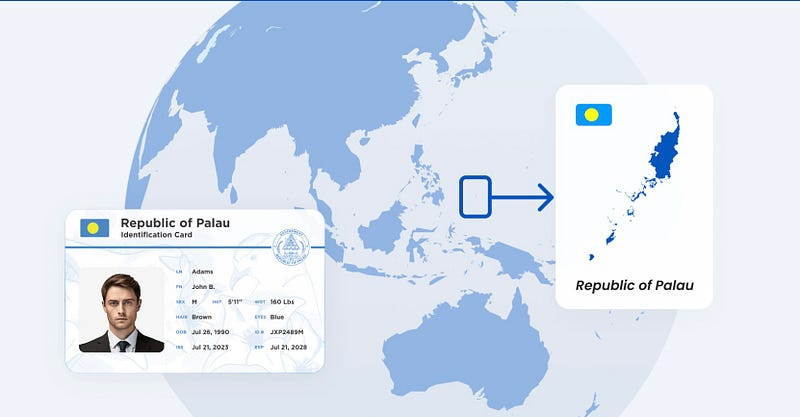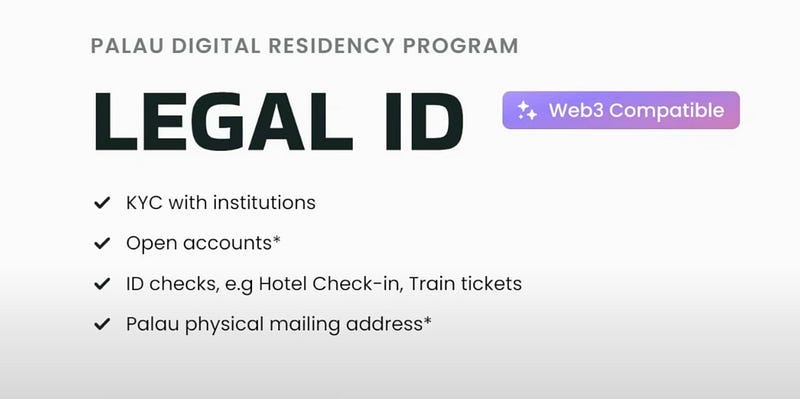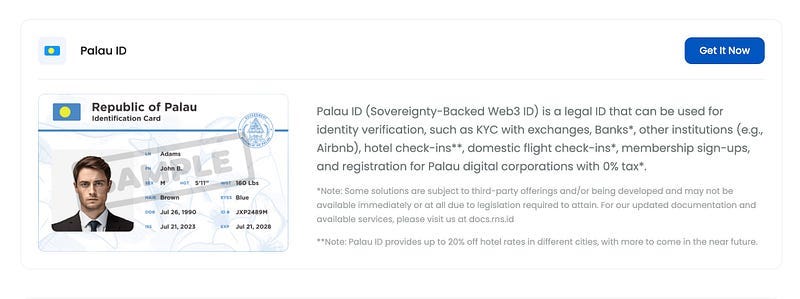Loophole Exploit — USA Residents KYC on Crypto Exchanges that Do Not Allow USA Residents!
Read on to learn how….
Read on to learn how….
What I am going to share here is NOT illegal in any way.
It is simply, a LOOPHOLE.
Most crypto exchanges don’t want to support U.S citizens due to cumbersome U.S regulations.
This puts many of the crypto world’s coolest tools just out of reach for USA residents.
For a long time, while not officially supported, they were not actively booting USA users.
Then came the KYC laws. (Know Your Customer)
One by one in the last two years, I have lost access to most of the exchanges that I loved.
Binance
Crypto(dot)com Exchange
Gate
KuCoin….
KuCoin is the exchange that I miss the most.
I loved the simple elegance of their trading bot configurations.
If I want to be able to use any of these crypto exchanges, I have to be a resident of another country.
So I decided to see if there was a way to get identification or citizenship in a foreign country online, without having to physically travel there.
It turns out, there is!
There are some fine print details to be aware of.
This doesn’t work for every exchange.
Exchanges that KYC with Passports, will not support this.
Exchanges that KYC with ID’s and Drivers Licenses, work like a charm.
How does this all work?

Palau.
Palau has a Digital Residency Program.
Not only that, Palau will issue and mail their digital residents IDs, anywhere in the world.
A digital residency ID serves as a identification document, but it is NOT a certification of citizenship. Important distinction.
Just because you are a digital resident doesn’t mean you are a citizen of Palau.
The country does NOT allow e-residents the right to visit or reside in Palau — but they allow anyone to pay a total of $248 to receive a physical ID document as well as one in the form of a non-fungible token (NFT).
Annual renewal costs $100.
Palau does not impose taxes on income that it’s residents make outside of Palau, and there is apparently a need for virtual ID to gain access to Palau services and benefits for residents who are not permanent citizens.
So, not only can you obtain a Palau ID without formal citizenship, there are no extra taxes with the Palau digital residency ID.
Palau (and many other countries) don’t tax their citizens or foreigners if they stay for less than 180 days.
The United States is a big exception there — the United States taxes all citizens regardless if they live in the U.S or not so keep that in mind.
Activity on any foreign exchange is still subject to US taxes, but at least it is not also subject to Palau taxation!
What is the Palau Digital Residency Program?
Available here : www.rns.id
This website allows anyone to establish a digital residency and claim their ID from Palau.
Your Digital ID is web 3 compatible — you can get your ID attached to an NFT.
There are two types of Palau Residency ID.
Palau Digital ID — standard.
Voyager Pass NFT.
Voyager Pass is their NFT web 3 ID and it does cost a little more at 0.15 each. (About $450 at the time of writing this)
Voyager NFT comes with one year Palau ID access, and increases in price if you select the 5 year or 10 year program.
If you are applying for KYC on an exchange — they typically only ask once.
I not yet been asked to KYC more than once on any exchange.
Submit KYC, then set up your 2-factor authentication, and typically you’re in for good.
Even if laws change and we have to do KYC every few years, it will be worth it to just apply again in the year I need it.
The application process is… long.
You’re going to have to provide a lot of your personal information
Because this is not the USA, you will not have to provide your social security number or anything like that, but rather — copious information about yourself similar to what you would have to provide to obtain a passport.
During the application process you will be required to include a photo, your current ID, the works.
Much like the KYC process on exchanges.
You Still Need a VPN
Many exchanges detect location via IP address.
If you are in the US, they may still block you and throw up a pop-up window (if you are not signed in).
Hopefully, if you are signed in and already KYC’d, this is not an issue.
In any case, running a VPN avoids that hassle.
I intend to run a trading bot on about $1000 for a month or two, and if all is smooth sailing, then I will transfer a bigger balance.
I see no reason there should be a problem.
This is technically speaking, a legal ID. There is nothing fake about it.
If a country decides to create a virtual residency ID, that is still a form of residency if they provide an address, and an ID to its virtual residents.
A Crypto Side Door: Buying a 'Digital Residency' in Palau for $248
The island nation's program advertising suggests residency could circumvent bans on services such as Binancewww.livemint.com
KYC is usually not asking for verification of citizenship, but for Identification and Proof of Residence.
This is a bold maneuver by Palau, but it’s not quiet or unknown.
I found out about this reading a story on The Guardian. A quick google search returned many results. It’s being talked about.
I am surprised I didn’t hear about this sooner.
Palau is positioning itself to become a global crypto hub.
All indications point to Palau intending to be as friendly as possible around crypto regulation and that they have done this specifically to support crypto.
Good times.
Disclaimer : The Republic of Palau kindly asks you to respect the laws of your current place of residence. A Palau digital residency ID enables you to gain access to the services that are available to Palau. It does not exempt you from the laws of your own country.
Thank you for reading!
Until next time….
Onward and Upward Everybody!
-Chris
Automated Income Lifesyle w/ Chris Morton YouTube
#crypto #kyc #loophole #palau #digitalresidency #cryptocurrency #digital #id #verification












